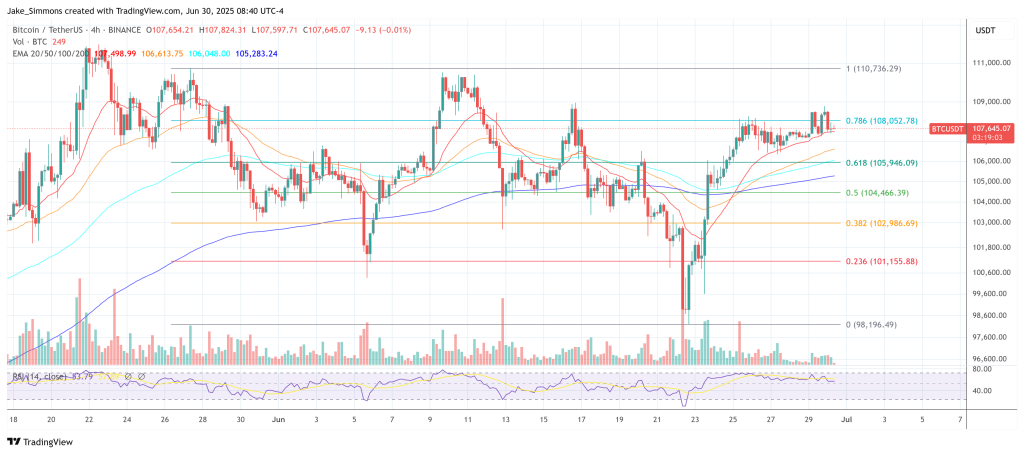Kazakhstan’s National Bank (NBK) has begun designing what could become the country’s first sovereign crypto-asset reserve, signalling a shift from piecemeal digital-asset oversight toward full-fledged strategic portfolio management. In a written response to a parliamentary inquiry, NBK Chairman Timur Suleimenov confirmed that “work is underway on the development of its formation and management concept,” adding that one option under review is to lodge the reserve inside an NBK-controlled subsidiary that already handles alternative investments.
Kazakhstan To Build Crypto Reserve
Suleimenov’s letter frames the reserve as a financial-stability instrument rather than a speculative bet. “International practice shows that the sources for such a reserve may include confiscated crypto-assets, as well as cryptocurrencies mined by a crypto miner partially owned by the government,” he wrote, stressing that feasibility studies are benchmarking global models of sovereign crypto reserves.
While Suleimenov’s language was cautious, the central bank’s house view is hard-edged. A separate note released through state news agency Kazinform says the NBK “stands for an institutionally sound approach,” grounded in the transparency norms used by traditional sovereign wealth funds. The same communication highlights the need for centralised custody inside a secure state structure “to ensure the sustainability (safety) of the state crypto-reserve.”
Turning concept into law will require parliamentary action. According to the NBK chief, amendments are needed to define the reserve’s legal status and set procedures for deposit and withdrawal. Draft language is already circulating, and the NBK says it “is ready to discuss relevant amendments with MPs.”
Kazakhstan’s Ambivalence Towards Crypto
The legislative push is unfolding against an aggressive clean-upof Kazakhstan’s grey crypto market. Since a 2024 ban on bank-mediated payments to unlicensed platforms, regulators have blocked 15,800 suspect transactions worth about $3.07 million in the first quarter of 2025 alone. Suleimenov has also flagged an upcoming bill that would attach administrative and criminal liability to off-exchange dealings and curb digital-asset advertising.
Even as the NBK sketches out a reserve, its public messaging to retail investors remains sceptical. Earlier this month Suleimenov warned that cryptocurrencies are “complex assets from a financial perspective… not like a deposit, where you go to a bank, put your money in for a year and earn interest.” He argued that “people get the impression that it’s some kind of magic wand,” a perception exploited by “scammers and Ponzi schemes.”
Today’s central-bank initiative builds on groundwork laid by the Ministry of Digital Development, which in May floated a crypto reserve capable of “respond[ing] more quickly to changes in the global financial system.” The ministry drew an explicit parallel to the National Fund — the country’s commodity-backed stabilisation vehicle — calling the prospective crypto reserve “a similar function, but in a digital dimension.”
Policy momentum also reflects pressure from legislators. Mazhilis member Olzhas Kuspekov recently proposed a fund inside the NBK that would warehouse crypto assets seized in criminal cases, though Deputy Governor Berik Sholpankulov countered that existing asset-forfeiture rules already channel such property to the budget.
For now, Kazakhstan’s central bank is working with law-enforcement and other state bodies on what Suleimenov calls the “specific mechanisms” of reserve construction — from custody architecture to valuation and risk-management protocols. No timeline has been published, and officials have yet to disclose which digital assets might qualify. What is clear is that the NBK wants its reserve — if created — to look less like a speculative vault and more like an institutional buffer that sits comfortably beside the country’s gold-and-FX war chest.
At press time, Bitcoin traded at $107,645.
